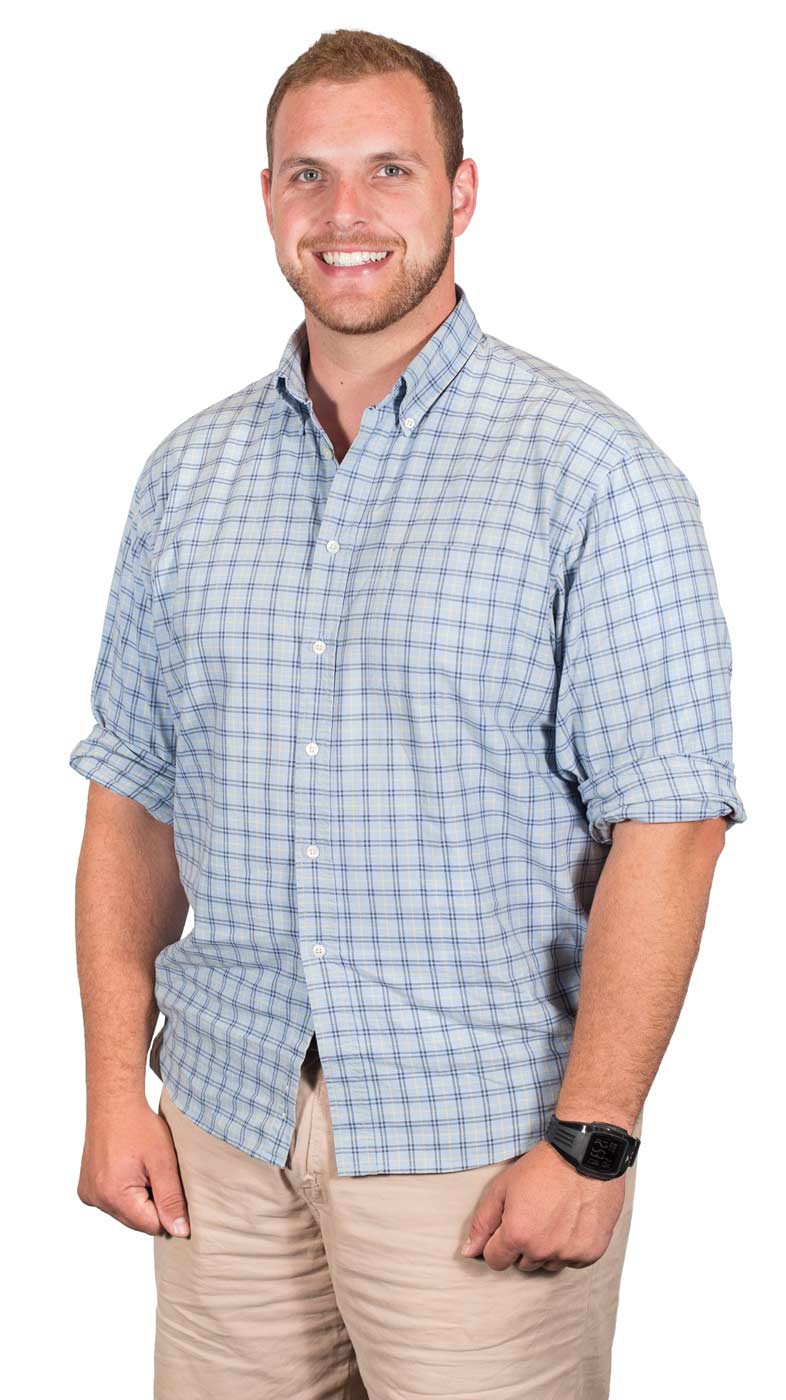family background / Guilherme grew up working alongside his father Renato and mother Edna at orchards in Southern Brazil. Guilherme obtained his master’s degree in tree fruit training systems and is pursuing his Ph.D. at University of Santa Catarina State (Universidade do Estado de Santa Catarina).
grower / São Joaquim, Brazil
age / 28
crops / Apples
business / Vale do Sol (Sun Valley)
 How did you get your start?
How did you get your start?
About 14 years ago, my dad purchased his own orchard. I grew up walking around with him in the orchards. Now I’m pursuing my education, working on my Ph.D., and I feel like I need to go further than my dad.
That way I’ll have a lot of information combined with his practical knowledge to cross reference and develop good results in the field. I’ve traveled to learn, too. I’m looking for knowledge.
How did your family farm start?
When dad started, other growers didn’t like high-density systems; however, dad was ready to look forward. He didn’t care if other guys didn’t think the way he did.
When people said they wouldn’t spend money on posts and wires, he’d say, “Hey Gime (my nickname), don’t listen to these guys. Look forward — it’s what they are doing all over the world. Keep pushing the prediction, make the payback faster than normal.”
In 2004 he planted an orchard in a high-density system, putting many more trees per hectare than is normal in our area. Two years ago, he rented another older orchard, planning to buy and convert it to a new system.
Are there challenges growing apples in Brazil?
In general, apple growing in Brazil is relatively short, about 40 years. Most apple growers are either second or third generation — not like the U.S. with many fifth-generation families. In Brazil, we have what’s called the Triangle, or the three areas where we can grow apples: Fraiburgo, São Joaquim and Vacaria.
In Fraiburgo and Vacaria, we have deep soils free of rocks. In São Joaquim, we have some flat areas but it’s mostly hills with shallow soil and a lot of rocks. In my area of São Joaquim, apple growing is typically with very vigorous rootstocks to grow trees in the difficult soils.
One of the rootstocks we’ve used, called Marubakaido from Japan, is traditionally one of the best in our area. People keep planting it and they are slowly increasing the densities. Our area doesn’t have the best conditions to grow apples; we have a lot problems.
In the winter we have don’t have enough chill hours, so we sometimes use artificial bud break. Sometimes we don’t have the best bud quality.
Why pursue your Ph.D.?
I need to see a lot of situations and check what we have in our region and see what we can do and develop for the future. There’s a lot of things to check before planning a new orchard.
I’m learning about training systems, how many wires, how much spacing to use, what kind of rootstocks to plant, with posts or without posts. In the future I want to be a professional consultant and grower.
What challenges do you see in becoming a consultant?
Growers seem to not want to spend money on wires and poles. They just want to plant. It’s difficult to get them to change their culture in that area.
However, some have been seeing positive results and they are thinking of change. Sometimes they use new rootstocks like Malling 9, but they don’t use all of the recommended ways to grow it.
They didn’t prepare the soil right or space the trees right. If they didn’t plant M.9, a non-vigorous rootstock, with close spacing in our shallow soil, they end up with trouble upon trouble.
What happens is when something doesn’t work, good people start to talk with each other, “Don’t use that rootstock. It will be a problem for you in the future. The trees don’t grow.” That lie, when it’s said often becomes reality for that growing area. These are the things I’m learning, because I don’t want to stay in the past.
What would you tell younger growers about the industry?
Think about what you’d like to do over the next 50 to 60 years of your life. If you decide to grow fruit, know that it’s not easy.
I recommend that you go study, double check that you want to be a grower, visit different orchards all over the world if you can, choose an area to work in the industry then later start your own business with knowledge. First knowledge, then grow.






A great interview with a wonderful person and researcher. It has been a pleasure to get to know Guilherme during his visits to Cornell.